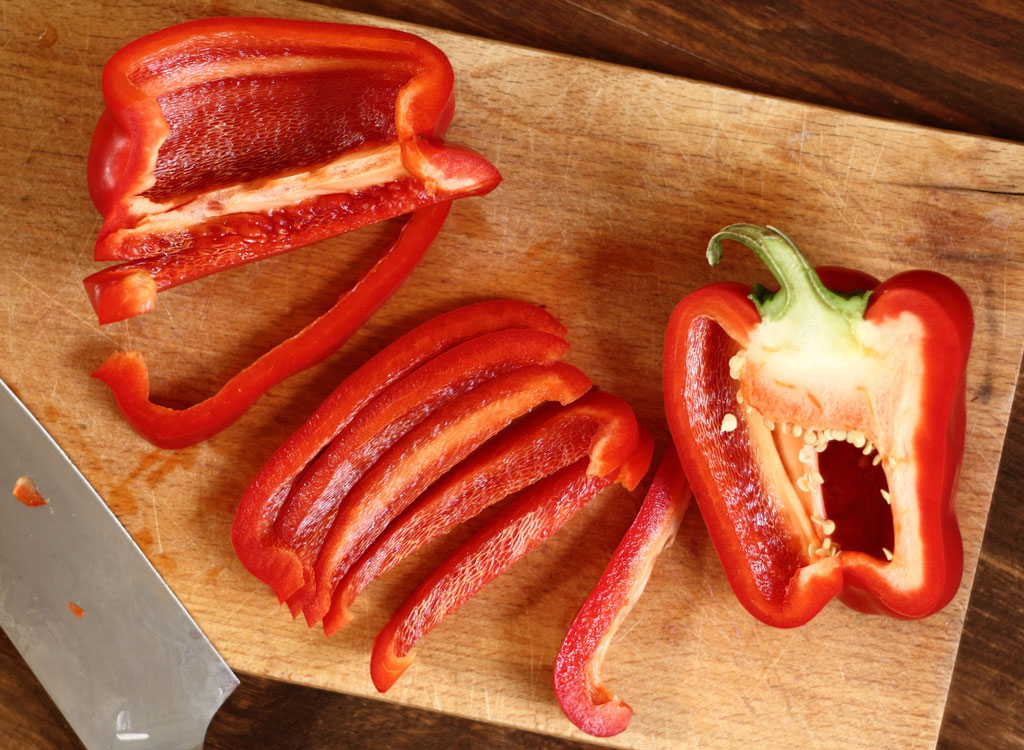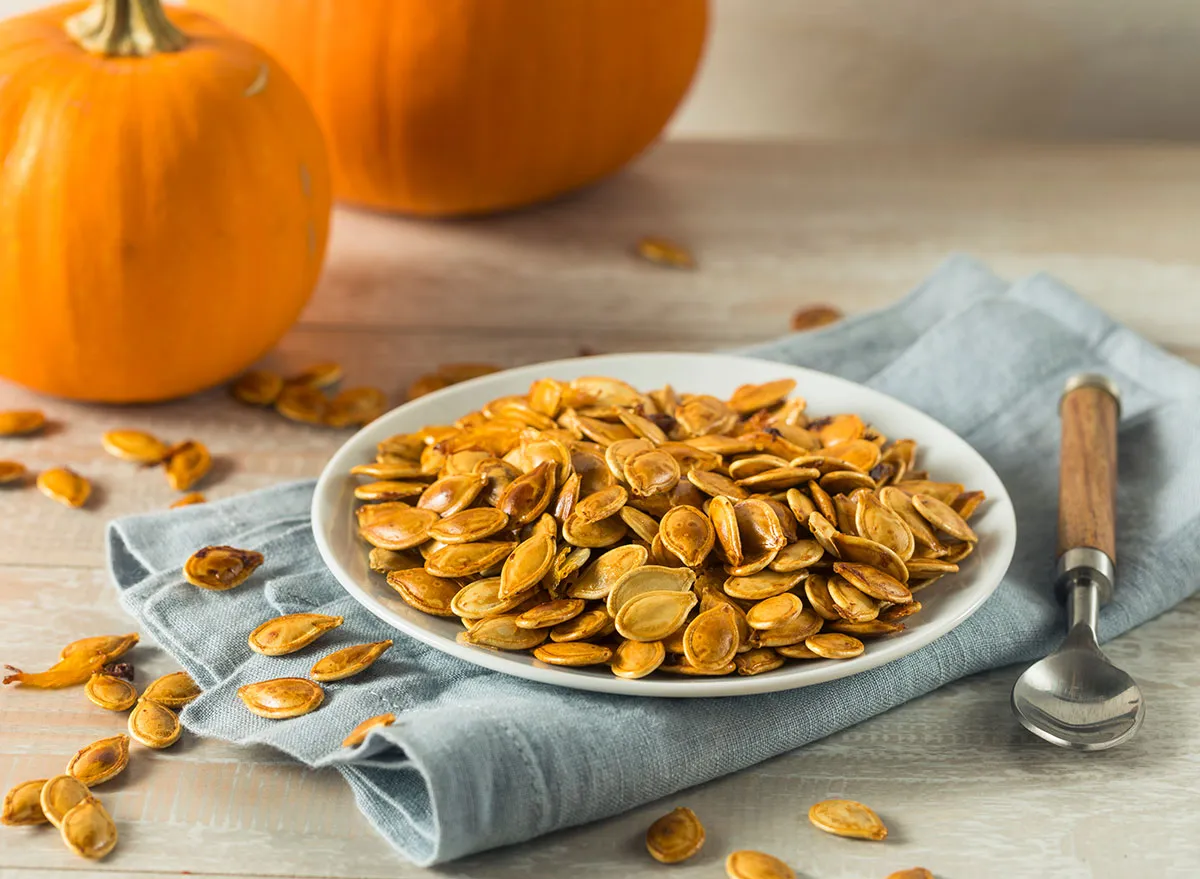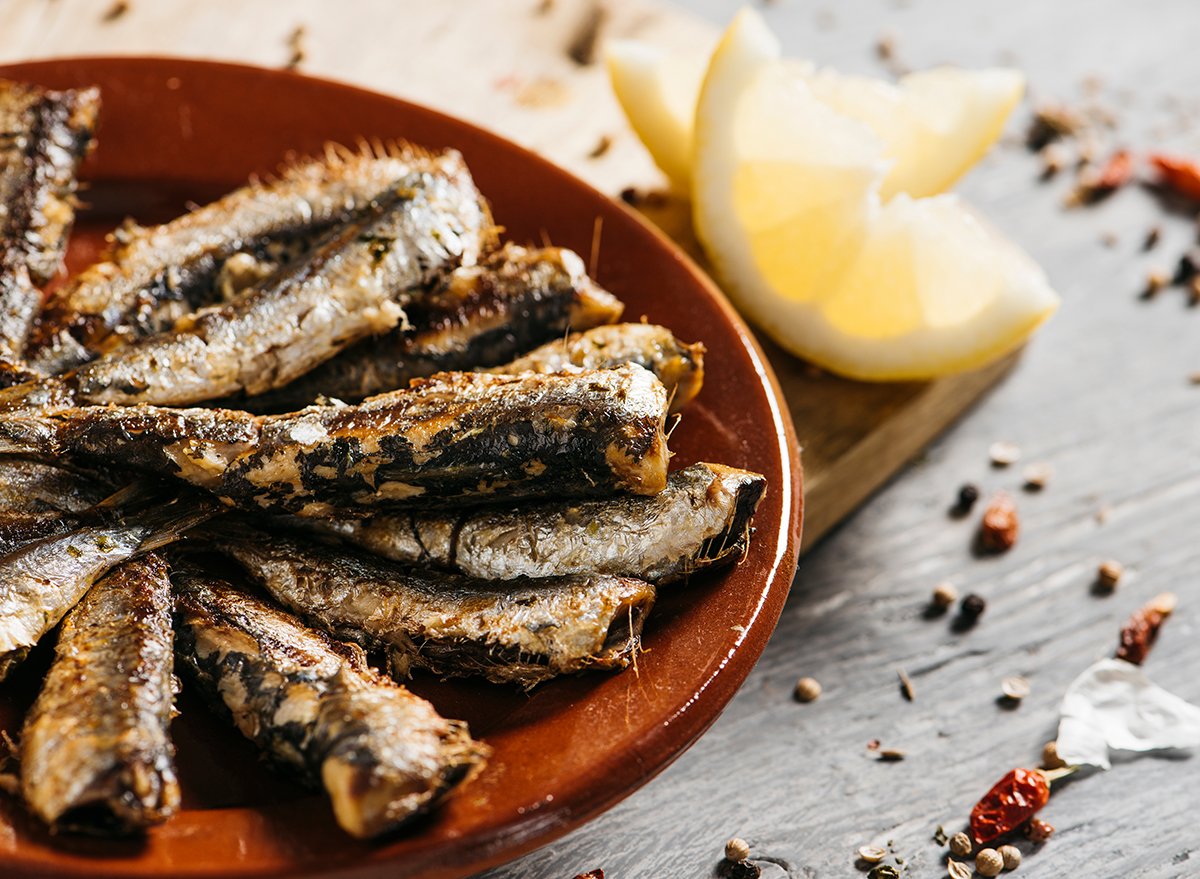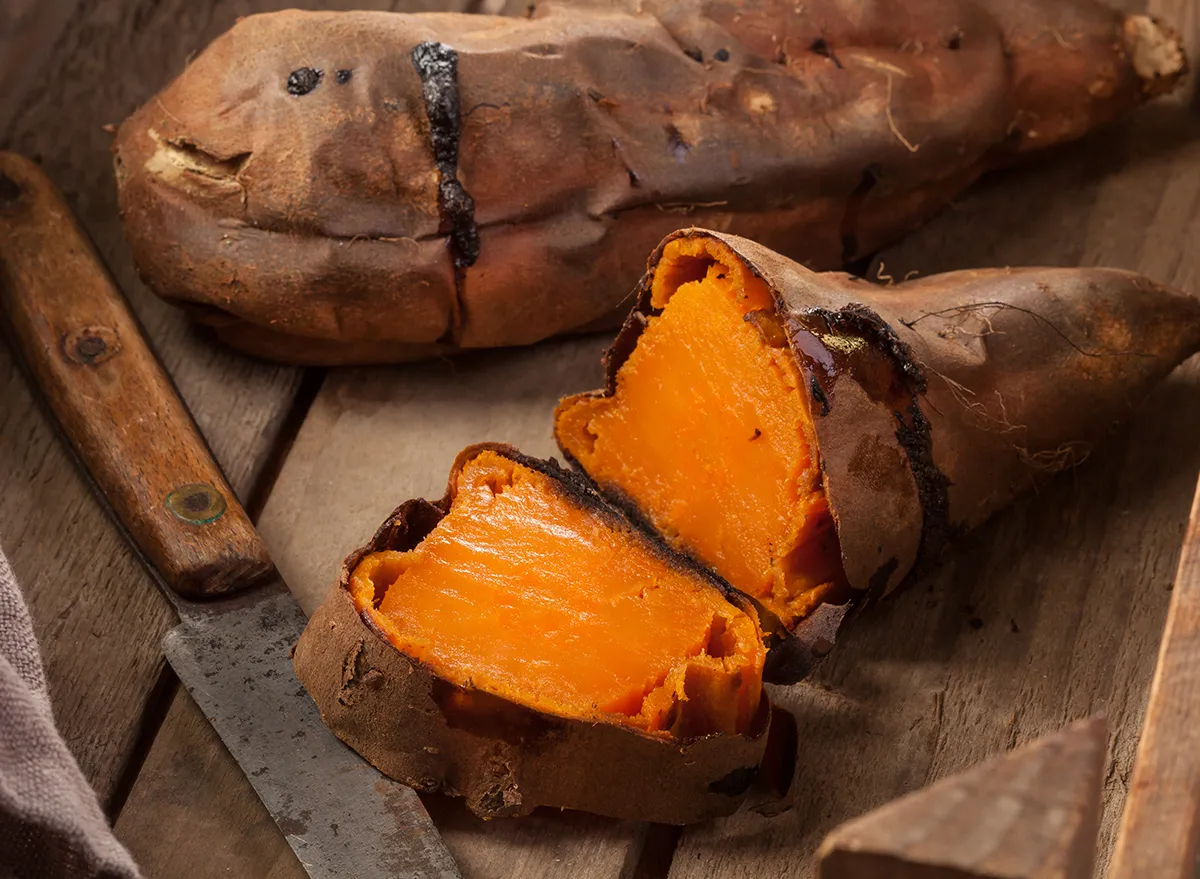The One Food to Eat to Improve Your Vision, Expert Says

You already know how important it is to take care of your eyes so you can avoid diseases like age-related macular degeneration and cataracts later in life. However, the latest research has given us another good reason to focus on our eye health. In addition to improving your quality of life, it could actually help you live longer.
In a February 2021 meta-analysis published in The Lancet Global Health, researchers looked at the data of 48,000 people from 17 studies. They found that the risk of mortality was 29% higher in those with mild vision impairment compared to those with normal vision. The risk increased to 89% for those with severe vision impairment.
“As populations continue to age, the prevalence of vision impairment and blindness are projected to more than double over the next 30 years,” note the researchers. “The impacts of vision impairment and blindness are wide-reaching, including an increased risk of falls, cognitive impairment, and dementia.”
Here’s the good news: Four out of five cases of vision impairment can actually be prevented or corrected. The leading causes of vision loss and blindness are cataracts or the unmet need for glasses, both of which can be treated with inexpensive and cost-effective interventions, according to the study.
In addition, certain foods can also play a role in preventing eye disease and keeping your vision sharp. Here are five grocery store staples that will help you maintain healthy eyes for years to come. And after, don’t miss The 7 Healthiest Foods to Eat Right Now!
Orange juice

Whether you sip on it at breakfast or splash it into an afternoon smoothie, orange juice can help protect your eyes from damage. “One hundred percent orange juice contains carotenoid plant pigments that can inhibit the production of inflammation in our cells,” says registered dietitian Mia Syn, MS, RDN. “Several studies have observed reduced risk of age-related macular degeneration with increased intake of carotenoids.”
Just be sure to stick to one serving (a cup) of orange juice, since it can quickly spike your blood sugar. Whole oranges are another good carotenoid-rich option that’s filled with fiber, which can slow the absorption of sugar into your bloodstream. And of course, don’t skip the shades—you still need to protect your eyes from the sun, too.
Red bell peppers

Although evidence has been mixed and more research is needed, some studies have associated high dietary intakes of vitamin C with a reduced risk of cataract formation, per the National Institutes of Health. “Red bell peppers are a good source of vitamin C, which is an antioxidant that may help lower your risk of cataracts,” Syn says. In fact, one large red bell pepper contains 233% of your daily value of vitamin C, per the U.S. Department of Agriculture (USDA).
Pumpkin seeds

Roast them and sprinkle them with your favorite toppings, from ground cinnamon to garlic powder!
“Pumpkin seeds are a good source of zinc, which may help delay the progression of age-related macular degeneration and vision loss by preventing cellular damage in the retina,” Syn says.
In fact, the widely-cited Age-Related Eye Disease Study (AREDS) found that a combination of beta-carotene, vitamins C and E, zinc, and copper lowered the risk of intermediate or advanced age-related macular degeneration from progressing by 25%.
Sardines

We have a challenge for you—don’t write sardines off without at least trying them, OK? Trust us, they make a delicious addition to pasta dishes or crackers with mustard. Oh, and they can also protect your peepers.
“Sardines are a convenient source of bioavailable DHA omega-3 fatty acids, which have anti-inflammatory properties and are important for retinal health,” Syn says. “DHA is a form of omega-3 fats found primarily in fish.”
Other good sources of DHA include salmon, sea bass, and mackerel, per the National Institutes of Health.
Sweet potatoes

It may come as a surprise, but eye drops aren’t the only way to ease dry eyes.
“Sweet potatoes are a good source of beta-carotene, which is an antioxidant that our body converts to vitamin A,” Syn says. “Vitamin A is a nutrient that helps prevent dry eyes and night blindness.”
Without vitamin A, your eyes can’t produce enough moisture or the pigments required for proper function of your retina, which can lead to night blindness, per the American Academy of Ophthalmology. Just one sweet potato packs more than 100% of your daily value of Vitamin A, per the USDA—making this spud a sight for healthy eyes.
For more, be sure to check out The 12 Best Vitamin A Foods For Skin, Hair, and Eye Health.